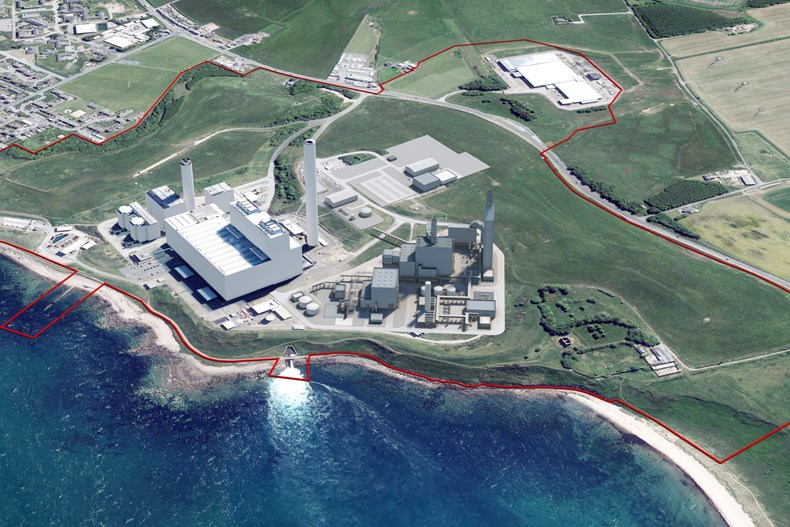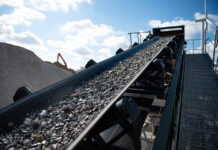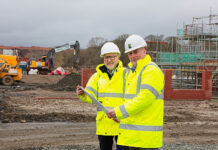
PLANS have been submitted by SSE Thermal and Equinor for the build of a new low-carbon power station at Peterhead.
The proposed station on the Aberdeenshire coast would become Scotland’s first power station equipped with a carbon capture plant to remove CO2 from its emissions.
Earlier this month, it was announced that the project will progress to full evaluation stage in a UK Government competition which aims to support industrial clusters to decarbonise.
The two firms said, if given the go ahead, the facility would be able to provide flexible power to keeps the lights on, whilst facilitating the transition to net zero.
In total, the station could capture an average of 1.5 million tonnes of CO2 a year, which would represent ‘at least’ 5% of the UK Government’s 2030 target for carbon capture and storage.
The project would also connect into the Scottish cluster’s CO2 transport and storage infrastructure, which the firms said underpins plans to deliver one of the UK’s first low-carbon industrial clusters.
Martin Pibworth, group energy and commercial director at SSE Renewables, commented, “Peterhead Carbon Capture Power Station could provide flexible low-carbon power while backing up the renewables-led system and will be crucial to a secure energy future for Scotland and the UK.
“Significant progress has already been made by the UK Government on CCS policy and associated business models – that must now be followed by greater ambition in terms of the number of power CCS projects supported this decade, allowing carbon capture to fulfil its essential role in achieving a net zero power system in the 2030s.
“By delivering the proposed new station with Equinor we can not only support a secure and affordable transition to net zero, we can also maximise the benefits of the low-carbon revolution for workers and communities in the north-east of Scotland. Projects such as this underline our wider commitment to delivering on decarbonisation targets, with SSE investing £12.5bn to 2026 to power the UK’s energy transition through our Net Zero Acceleration Programme.”








